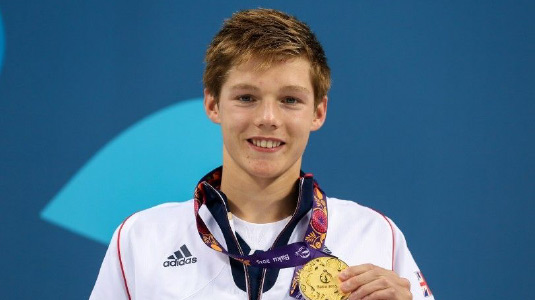SFC news published since 2018. See SFC archived content for earlier news articles.
SFC’s André Reibig has some surprising insights into Scotland’s sporting success in Australia and SFC’s role in student athletics.

You can’t have failed to notice that Scotland did pretty well in the recent 21st Commonwealth Games in Australia. Team Scotland’s haul of 44 medals was by far the best result ever at an overseas event and not far behind the 53 medals achieved on home turf at the Glasgow Games of 2014.
One of the Gold Coast Games’ poster boys was Scottish swimmer, Duncan Scott, whose six medals in Australia made him the most decorated Scottish athlete at a single Games. If you followed the media coverage closely enough you might know that Duncan Scott is a student at the University of Stirling and that he returned home from the Games to resume his revision for summer exams. You probably won’t know, however, that Duncan was one of 29 current and 37 former Winning Students participants who contributed to Scotland’s fantastic achievements in Australia.
 The Winning Students programme has been one of Scottish sports’ success stories over the past ten years. The programme ensures that student athletes get support and flexibility to train and compete while studying at a Scottish college or university. Since its inception in 2008, Winning Student athletes have performed at every Commonwealth and Olympic Games.
The Winning Students programme has been one of Scottish sports’ success stories over the past ten years. The programme ensures that student athletes get support and flexibility to train and compete while studying at a Scottish college or university. Since its inception in 2008, Winning Student athletes have performed at every Commonwealth and Olympic Games.
The way it works is that gifted young athletes are supported by scholarships of up to £6,000 a year. The money can be used for a range of sports services such as physiotherapy, coaching, psychology and training as well as academic related expenses such as accommodation, living costs and study fees. Winning Students scholars are identified and nominated by the governing body of their sport and the scholarships are funded by the Scottish Funding Council.
Winning is not just defined by athletes’ success in the international arena. When the first wave of Winning Students participants was asked about the benefits of the programme, 90% of them said that the scheme had significantly contributed to their academic performance. Crucially, two thirds of them said that Winning Students had influenced their decision to study in Scotland instead of moving abroad.
For individual sports, Winning Students scholarships represent additional investment, allowing them to better support other areas of their work like early years and community sport. For colleges and universities the presence of elite athletes promotes the positive image of institutions and provides them with an additional tool to promote the successes of their students.
And the story doesn’t end there. Winning Students has opened up further and higher education to young people who might once have considered it a barrier to their sporting progress. It’s not so long ago that some aspiring athletes had to fund their path to a career in athletics or sports coaching by signing on the dole. That deprived them of the benefits of education and the knowledge and skills to fall back on later in life.
There are more ways of winning than gaining medals at international competitions – although that is, of course, a cause for great national and individual pride. The ripple effect of the Winning Student programme means that its benefits extend far beyond the rostrum and into colleges, universities and local sports. It also has undeniably positive effects on the wider health and well-being of the young people who are inspired by the achievements of this amazing generation of Scottish elite athletes.
Here’s to an ever healthier, smarter and more successful Scotland.

